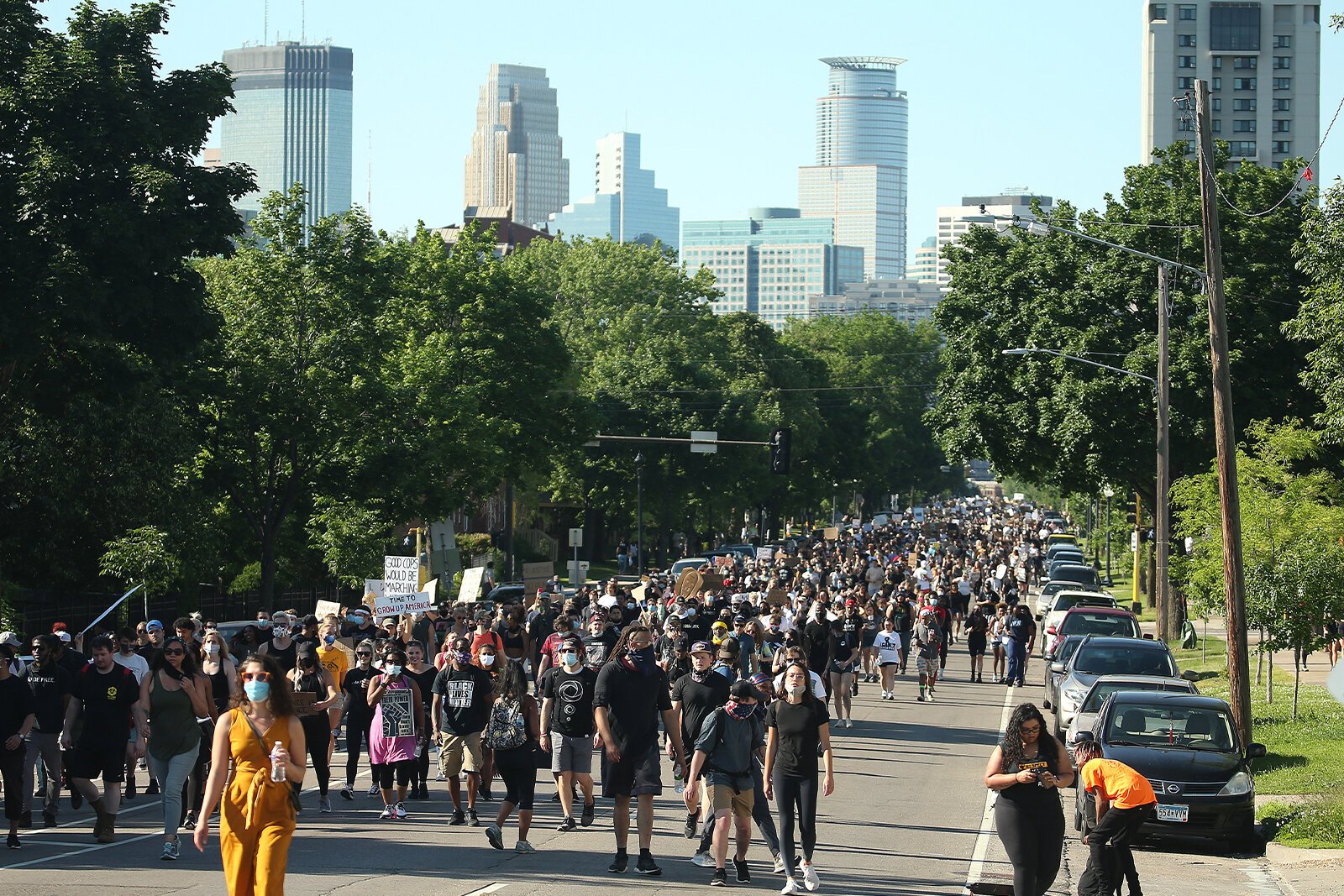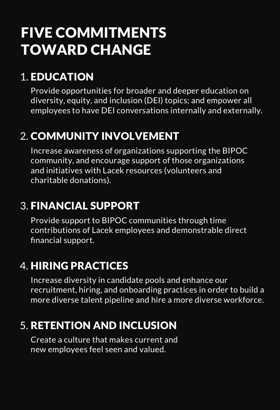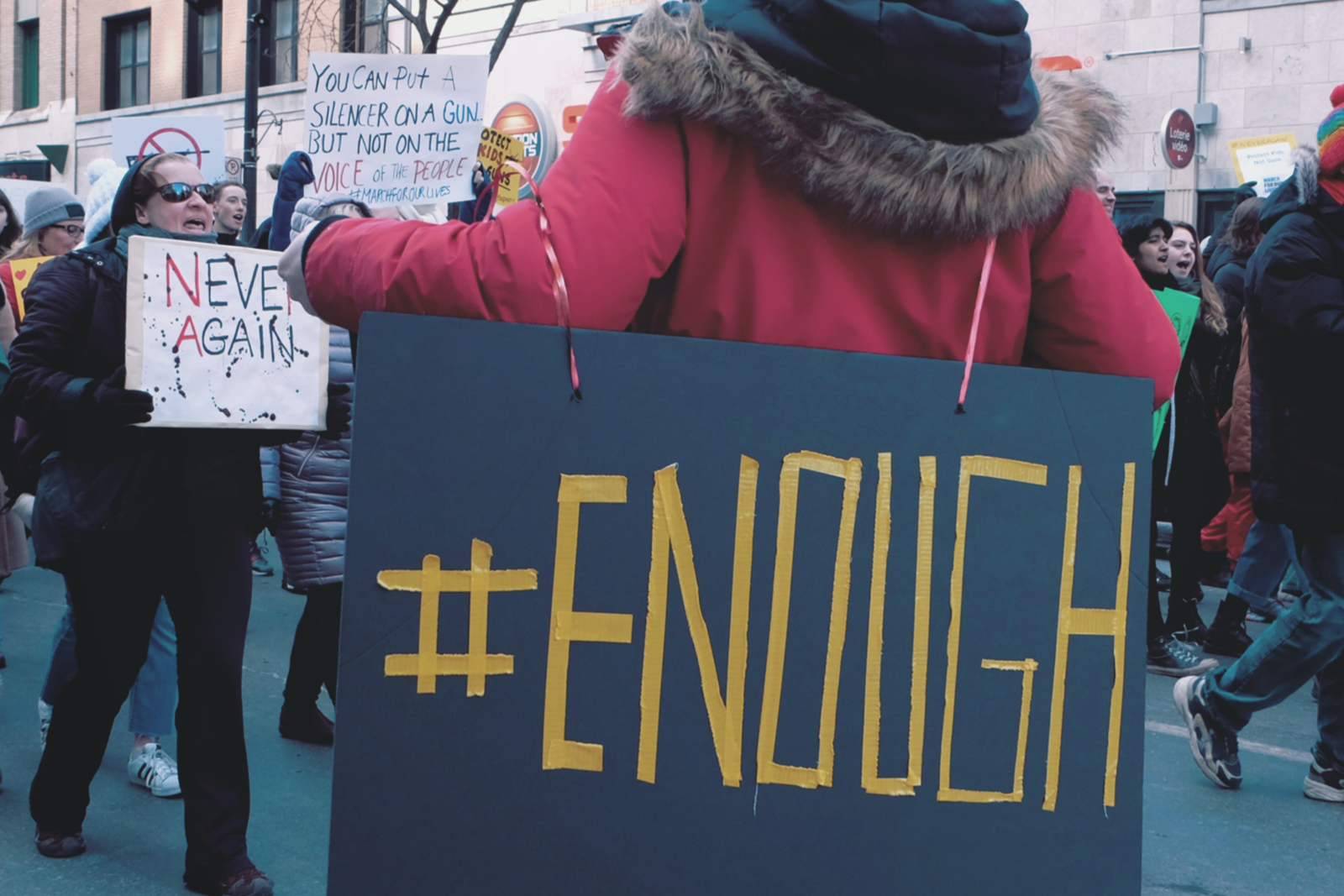Agency Voices: Our Journeys

Starting the Long Journey Toward Being an Anti-Racist Agency
Last summer employees at The Lacek Group, like people around the world, watched the video of George Floyd’s murder in horror. Our Minneapolis agency is located just three miles north of the site of his death. Perhaps that gave us even more impetus to jump into action—it felt so personal. Within less than a week, our leaders and employees were holding raw online conversations, in large and small groups, about how our majority-white agency can become a better ally and work to understand, respond to, and, ultimately, do our part to change a systemically racist society. In addition, many of us not only mourned the death of George Floyd and the other Black, Brown, and Indigenous people senselessly villainized and killed, but marched in protests against police brutality.
In the days that followed, it appeared that individuals and organizations around the world seemed equally shaken—both by Mr. Floyd’s death and by the very realization of racism’s existence within our systems. Many brands took to social media or rolled out ads, vowing to take a stand against racial injustices or further their commitments to fighting and ending them.
But honestly, I felt cynical. A question kept bothering me: Why did it take the death of yet another Black man for the world to wake up to the prevalence of racism in our society? Was it simply the video? After all, there have been plenty of such videos before this. Even in Minnesota, this wasn’t the first time a video had captured a police officer killing an unarmed Black man. In St. Paul, a police officer shot and killed Philando Castile just 40 seconds after pulling him over in 2016.
I wasn’t alone in my skepticism. Plenty of brands were called out for their lip service, aka virtue signaling, including Amazon, Facebook, and McDonald’s. How many brands’ statements were genuine? And how many were exercises in public relations, hoping to win over consumers in the heat of the moment? Isn’t it performative and predatory for brands and agencies to state that they’re anti-racist yet fail to follow through in any meaningful way? Where were these organizations when Eric Garner, Michael Brown, Bettie Jones, Elijah McClain, Terence Crutcher, Freddie Gray, Trayvon Martin, and so many other Black people were killed by police officers?
 Throughout this summer, our team brainstormed and soon formed action-oriented, diversity-equity-and-inclusion (DEI) committees focusing on five key areas (see sidebar)—like education, hiring practices, and community involvement—to do our part in helping to dismantle white supremacy, amplify the voices of Black people and other marginalized groups, and create change within our community.
Throughout this summer, our team brainstormed and soon formed action-oriented, diversity-equity-and-inclusion (DEI) committees focusing on five key areas (see sidebar)—like education, hiring practices, and community involvement—to do our part in helping to dismantle white supremacy, amplify the voices of Black people and other marginalized groups, and create change within our community.
Each group of up to a dozen employees meets at least weekly, and we’re making progress. For example, we’ve teamed up with a local nonprofit dedicated to diversity in advertising, and a speaker series will begin in 2021. Our leaders increased from one to three the number of paid community and civic involvement days that employees receive, and provided a list of nonprofits that focus on anti-racism efforts. The Lacek Group is also matching our employee donations to 20 such organizations, in alignment with our parent company, Ogilvy. And, beginning this year, Juneteenth became an official company holiday so that we take time away to begin to educate ourselves about the long history of systemic racism—including in advertising. These enhancements are part of larger-scale, long-term commitments that our agency has made to supporting DEI in our agency—with our hiring practices, becoming more involved in the diverse community around us, and bolstering the inclusion of all employees within our agency, to name a few.
 Unfortunately, since its beginning, the advertising industry has been part and parcel of a systemically racist society, engaged in helping clients stereotype people of color (from the Aunt Jemima brand founded in 1889 to Gucci’s blackface sweaters in 2019), denigrate people of color (e.g., Volkswagen’s flicking-hand video posted earlier this year), omit them completely (e.g., brands that only or mostly use white models) and/or help them look more like white people (e.g. selling skin-lightening lotions).
Unfortunately, since its beginning, the advertising industry has been part and parcel of a systemically racist society, engaged in helping clients stereotype people of color (from the Aunt Jemima brand founded in 1889 to Gucci’s blackface sweaters in 2019), denigrate people of color (e.g., Volkswagen’s flicking-hand video posted earlier this year), omit them completely (e.g., brands that only or mostly use white models) and/or help them look more like white people (e.g. selling skin-lightening lotions).
Additionally, the advertising industry has used discriminatory practices in hiring and pay. In fact, a decade ago, Wieden + Kennedy’s Dan Wieden took his agency and others to task at a national advertising conference. “I essentially hire a bunch of white, middle-class kids, pay them enormous, enormous sums of money to do what? To create messages to the inner city, to kids who create the culture the white kids are trying like hell to emulate, but if you go into the inner city, odds are these kids aren’t even going to see advertising as a possibility, as an opportunity for them.” Ten years on, only 6% of people who work in advertising are Black.
Indeed, change has been excruciatingly slow despite signs that hiring and retaining people of color lead to financial rewards. In 2018, McKinsey published “Delivering through Diversity,” which reported a direct correlation between diversity (that is, ethnically/culturally diverse individuals and women) in the leadership of large companies and their profitability and value creation. McKinsey also “found that more diverse companies are better able to attract talent.” So why do advertising agencies continue to resist? Systemic racism.
To repair the damage advertising has caused, it’s our responsibility as marketers to confront our role in perpetuating stereotypes, ideologies, and behaviors so that we can begin to foster a safe environment for people of color—not to mention, members of the LGBTQ+ community, disabled people, and other disenfranchised groups. And it’s the job of advertising agencies to influence powerful brands to lead the way to change—despite the consequences.
In July, the entire staff of Periscope, another Minneapolis-based advertising agency, staged a walkout when its parent company refused to acknowledge and support Black Lives Matter. I admire their team for willingly and bravely taking a stand.
Being an advertising ally means putting careers and clients on the line to demonstrate solidarity. We can no longer turn a blind eye to racism in our industry and in our world. We must confront it. We must work with clients that are equally committed and turn down brands that aren’t. We must include people of color at the table and in our advertising. And we must celebrate them, not use them as DEI representatives.
Early on last summer, Bill Baker, our CEO, sent a company-wide email addressing George Floyd’s murder, the protests, and systemic racism. In it, he emphasized our duty to create change. “The effort and the pursuit of equality can no longer fall on only those who have and continue to experience injustice.” I’m grateful for those words.
While we’re beginning to make strides as individuals, marketers, brands, and agencies, we have a long journey of reflection, confrontation, and change ahead of us before the racism ingrained in our industry and institutions can be eradicated. But working together to address and recreate the system through a shift in mindset, behaviors, and how we do our business will be the first of many steps in creating a future of equity.
Montanna Cervenka was manager, Strategic Services, at The Lacek Group, a Minneapolis-based, data-driven, loyalty, experience and customer engagement agency that has been delivering personalization for its world-class clients for more than 30 years. The Lacek Group is an Ogilvy company.

